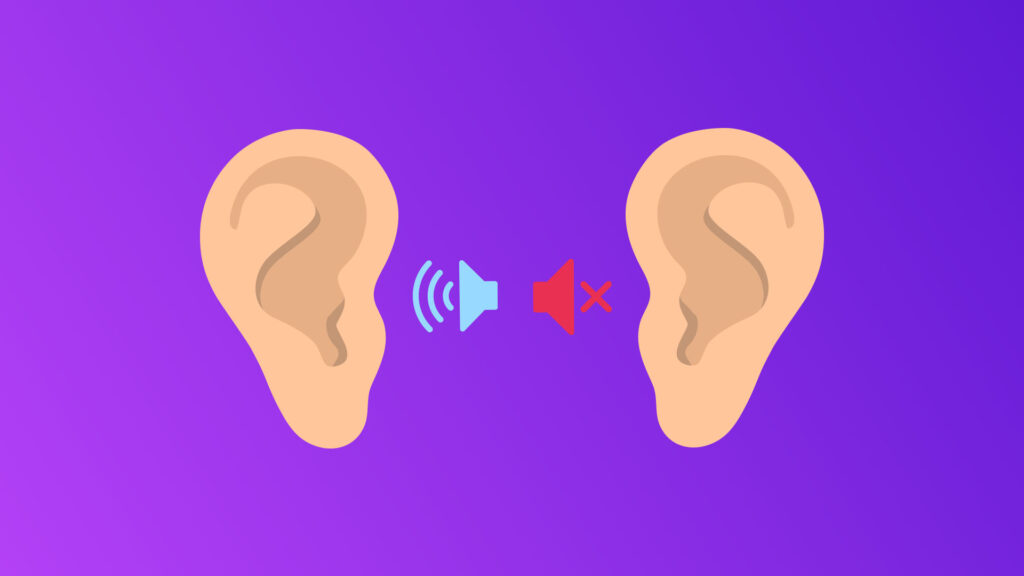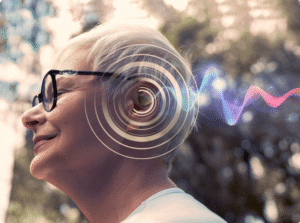Hearing loss often begins subtly—so subtly that many people don’t notice until it starts interfering with daily life. You might ask someone to repeat themselves more often, turn up the volume on your devices, or withdraw from conversations without realizing that these behaviors signal a deeper issue.
Early detection is crucial. Untreated hearing loss can lead to social isolation, cognitive decline, and a reduced quality of life. Fortunately, by recognizing the signs early and taking action, you can slow its progression and protect your auditory health naturally.
Why Early Detection of Hearing Loss Matters
The earlier you identify hearing decline, the better your chances of preserving auditory function. According to the National Institutes of Health (NIH), approximately 1 in 8 people in the U.S. aged 12 or older has hearing loss in both ears, based on standard hearing exams.
Left unchecked, hearing impairment may result in:
-
Cognitive fatigue and memory issues
-
Social withdrawal and depression
-
Higher risk of developing dementia, especially in older adults
Hearing is not just about the ears—it’s deeply connected to brain health, mood regulation, and overall well-being.
Discover Audifort – the natural supplement for hearing clarity.

6 Early Signs of Hearing Loss You Shouldn’t Ignore
1. You Keep Asking People to Repeat Themselves
This is one of the most common and earliest signs. If you frequently respond with “What?” or “Say that again?”—especially in quiet settings—it may signal auditory decline.
2. Tinnitus (Ringing or Buzzing in the Ears)
A persistent ringing, buzzing, or hissing sound with no external source is a hallmark symptom of hearing damage, particularly in the inner ear.
3. Difficulty Understanding Speech in Noisy Environments
Struggling to follow conversations in restaurants, group meetings, or family gatherings—even though you hear the voices—can indicate early sensorineural hearing loss.
4. You Turn the Volume Up More Than Others Prefer
If friends or family comment on how loud you play music or TV, your hearing may already be compensating for subtle losses in sensitivity.
5. You Feel Exhausted After Social Events
Listening fatigue is real. When your brain works overtime to fill in auditory gaps, it leads to mental exhaustion, especially after group conversations.
6. You Notice a Sudden Decrease in Hearing Clarity
Whether in one or both ears, a noticeable change—especially over days or weeks—is reason enough to seek support or evaluation.
Discover Audifort – the natural supplement for hearing clarity.

Common Causes of Hearing Loss
-
Aging (Presbycusis): Natural decline in hair cell function in the inner ear.
-
Noise Exposure: Loud music, traffic, construction, or long-term use of headphones.
-
Ototoxic Medications: Certain antibiotics, chemotherapy drugs, and high-dose painkillers.
-
Nutritional Deficiencies: Lack of key vitamins and minerals affects blood flow and nerve function in the auditory system.
How Nutrition and Natural Extracts Can Support Hearing
Science increasingly supports the idea that hearing health is linked to circulation, inflammation, and neurological integrity.
Key nutrients and plant compounds that may help:
-
Ginkgo biloba: Improves microcirculation to the inner ear
-
Maca and Ginseng: Known for energy, hormonal balance, and antioxidant properties
-
GABA and L-Glutamine: Support neural communication and protect auditory nerve cells
-
Zinc and Magnesium: Crucial for inner ear function and oxidative stress defense
While no supplement can replace hearing aids or medical treatment when needed, the right formula may support clarity, comfort, and delay progression when used preventively.


